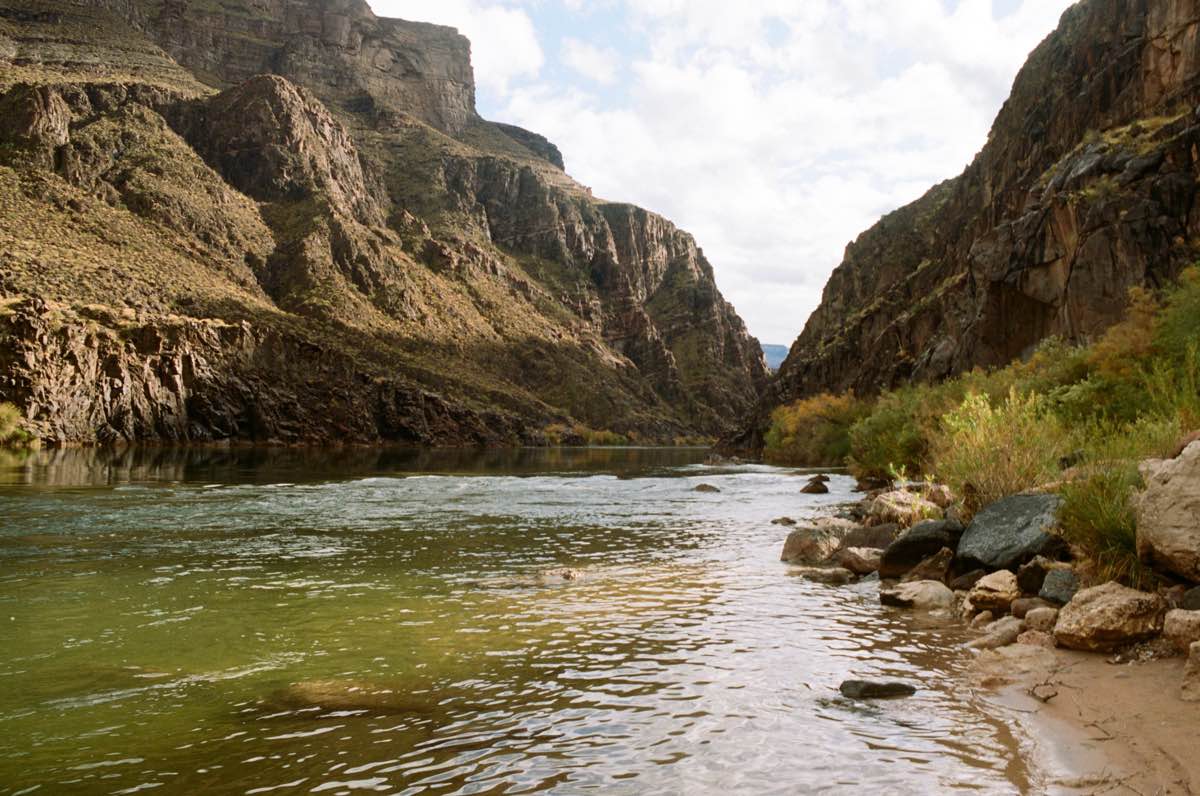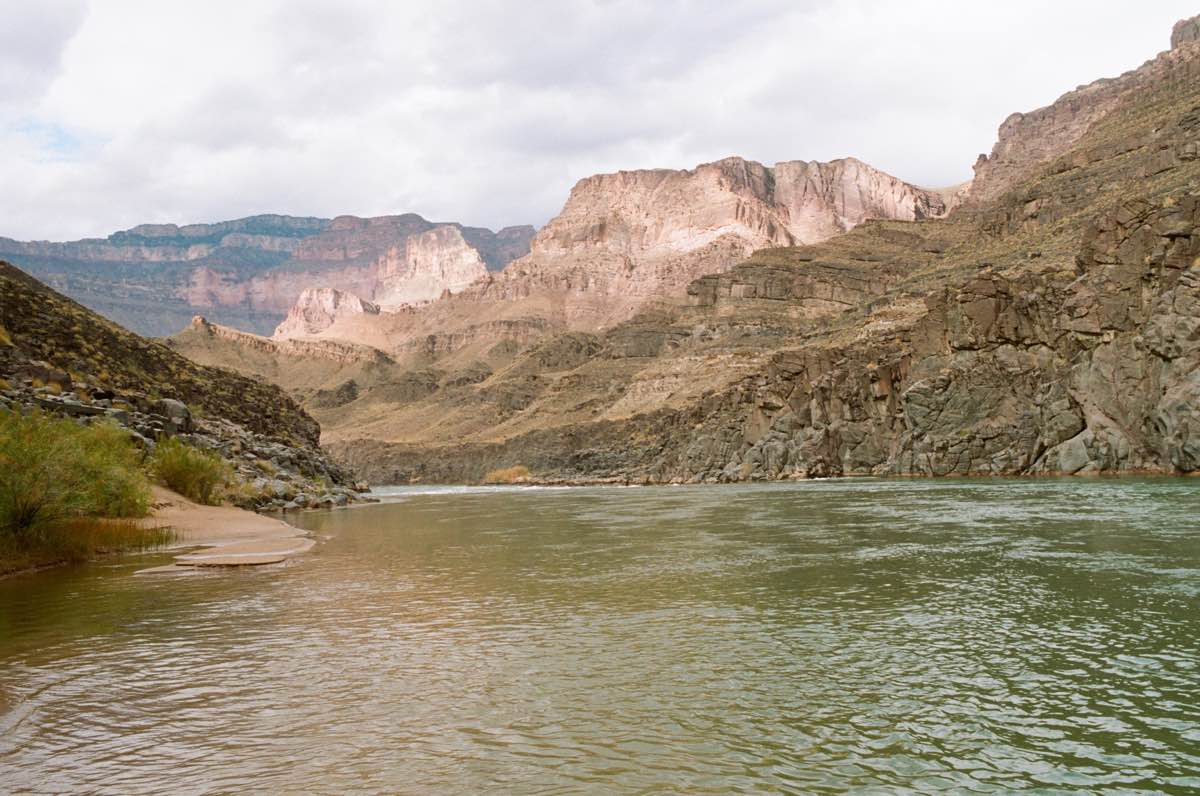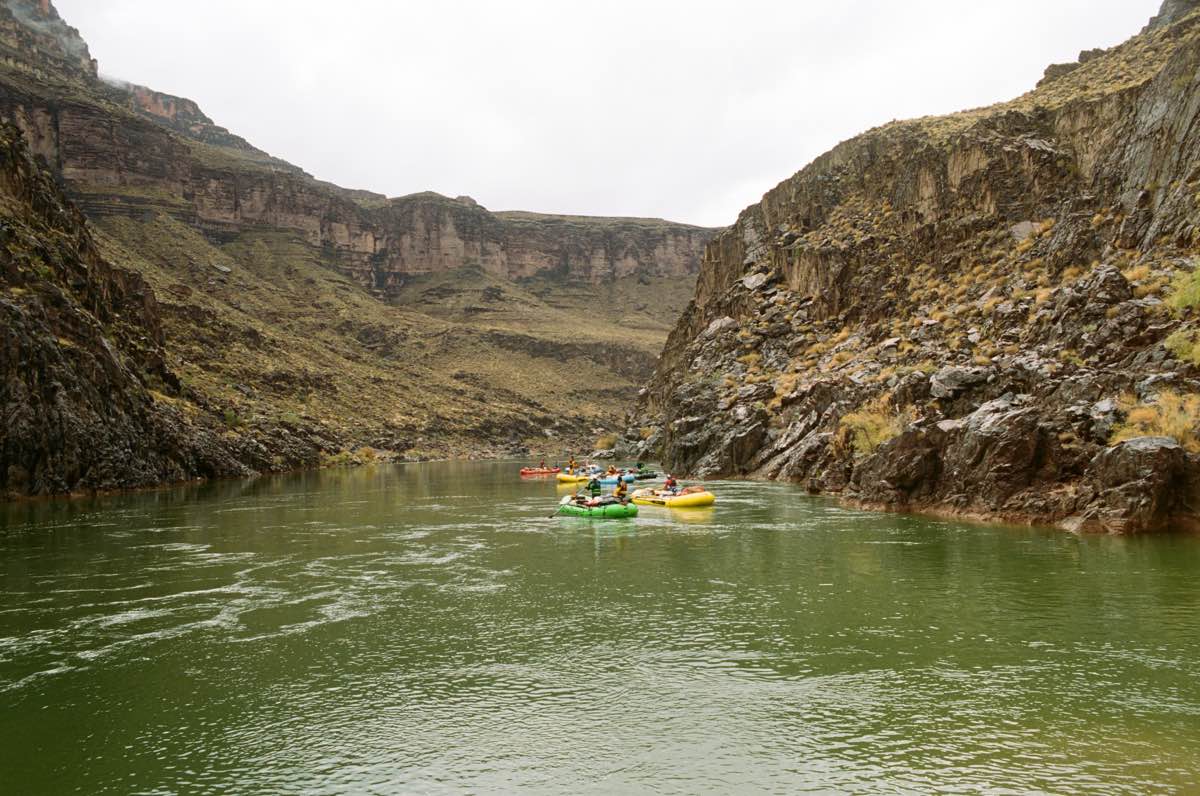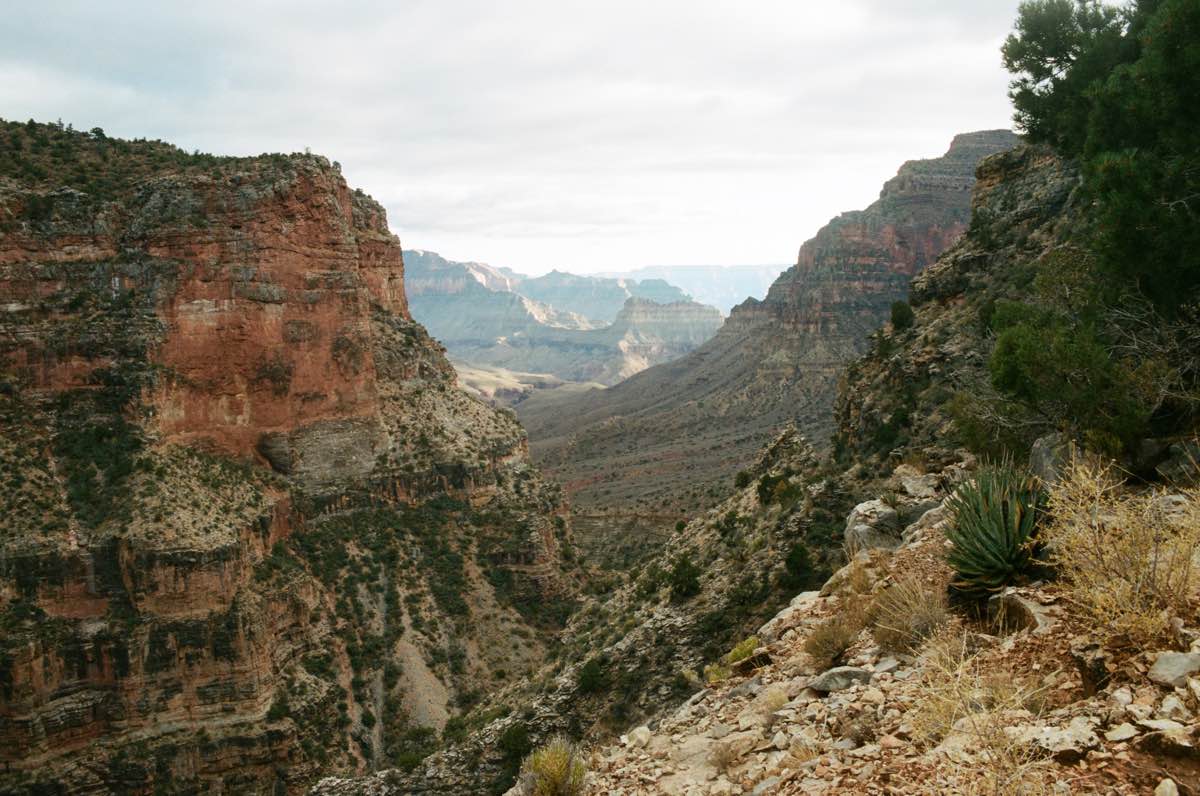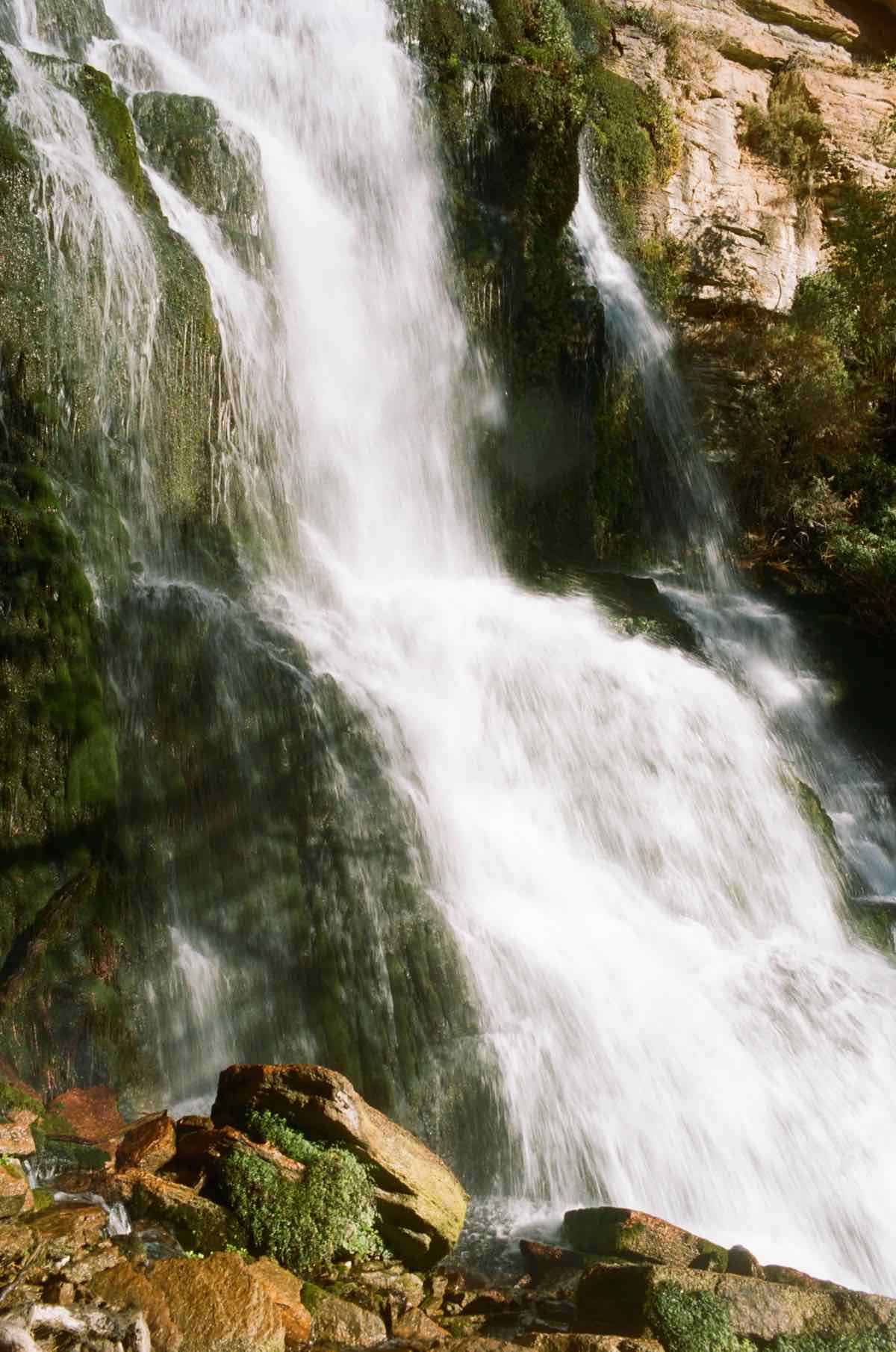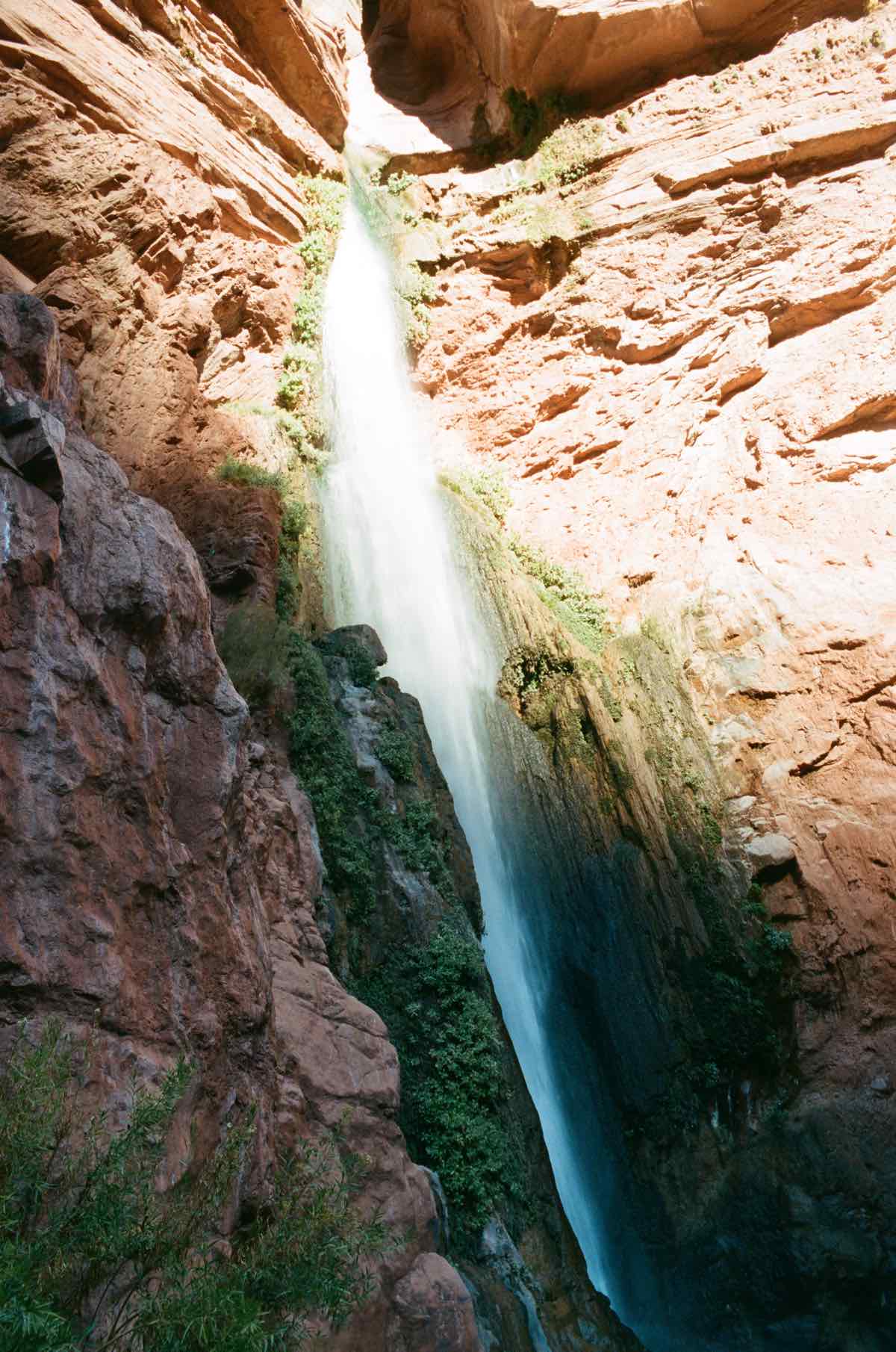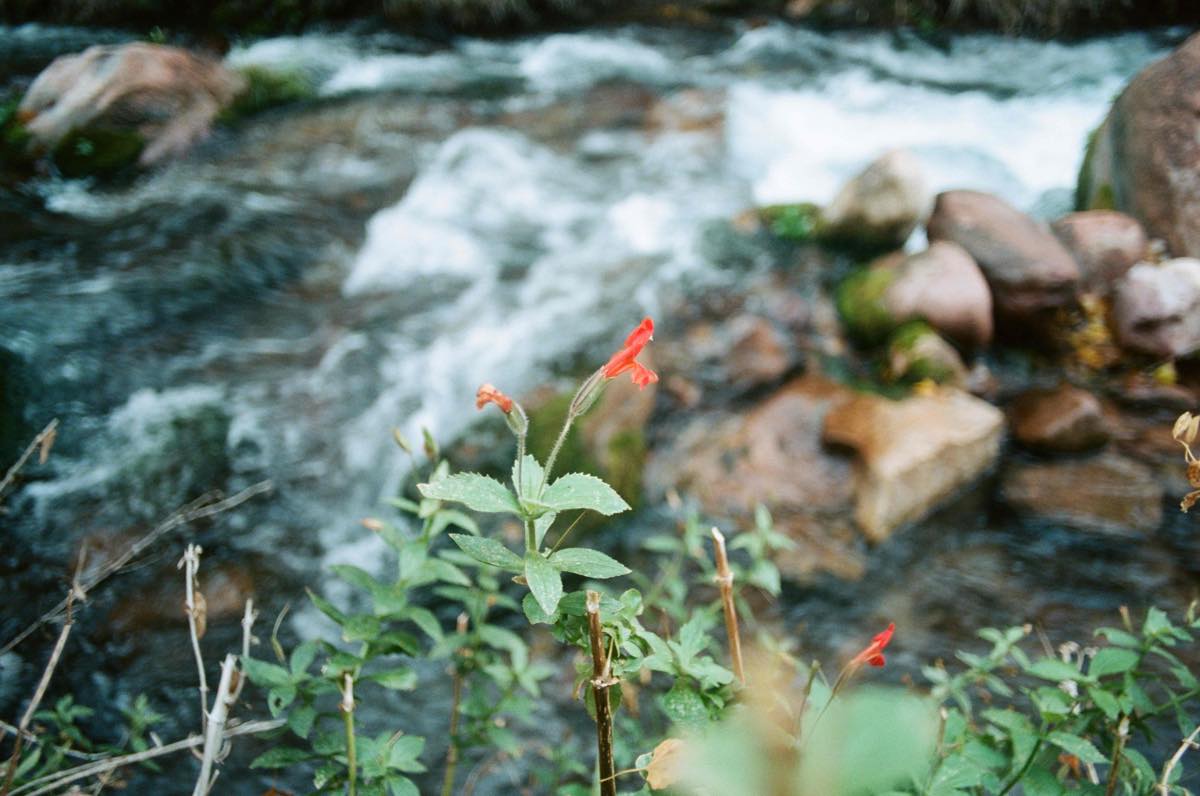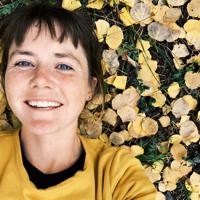The rain pattered on my tent. I lay there wide awake, not sure of how else to occupy my time. I had been there two days, waiting for a random boat to pass by so that I could ask them for a ride across the river. I reminded myself that despite my boredom it is not very often that one gets to sit all alone on a beach next to the Colorado River and at the bottom of the Grand Canyon. Occasionally, the rain would stop and I would crawl out of my tent to roam. The beach was small, maybe 100 feet long. I’d pace back and forth on the wet sand until it started to rain again. I was afraid to wander too far off for fear I’d miss a boat going by. I even positioned my tent’s doors to look upstream for the brightly colored rafts that could float by at any time.
While in my tent I found myself braiding a long piece of chord I had found a couple weeks before. I braided it over and over again. The repetition reminded me of running: meditative and comforting.
After the rain, the scents of all my surroundings seemed to be turned on. The wet smell of dirt and rock, the damp sand, and the overwhelmingly sweet and slightly pungent smell of the willows. A scent I’m guessing will stay with me for a while. The ravens croaked and swooped along the sides of the canyon. The river, fortunately for the sake of filtering drinking water was running clear, not its natural silty color. I tried to distract myself by simply observing the details of where I was. Something that’s easy to forget to do at home.
I knew a boat would come. After all, the river only flows one direction. But I just wasn’t sure when. It was November and the busy, commercial boating season had passed. According to the national park, one private group a day was launching from Lee’s Ferry far upstream of me. In theory, then, I should expect to see at least one boat per day. But alas, after roughly five months with no rain, the welcome drizzle began when I was in one of the most remote sections of my thru-hike of the Hayduke Trail in which forward progress relied solely on that of strangers bobbing downstream. It seems everyone was bedded down, waiting out the weather somewhere else. I had carried nine days of food from the South Rim of the Grand Canyon. After the 2.5 days it took me to get to the bottom of the South Bass Trail, I knew I could afford another 3.5 days of waiting until I would have to turn around and backtrack. I was trying to ration my food, but anyone who is familiar with long distance thru-hiking is also aware of the term “hiker hunger.” It’s a beast that I was trying to tame.
Could I swim across the canyon? I had run into my friend John Shocklee, a well known river guide in the Grand, just before I left home in Silverton, Colorado. I heard his famous last bit of advice: “Don’t swim.” My swimming abilities are questionable at best, something I only force myself to do when I’m so injured I can’t walk. And more notably, the Colorado River ain’t warm. I’d be more likely to drown as a result of shock and hypothermia, than from my frantic dog paddle.
I tend to be a solo adventurer and when I’m moving loneliness isn’t as much of a thought, distracted by the terrain and the physical exertion. But sitting alone in a tent just simply waiting with no one around and nowhere to go was a new type of test for my mind. A huge reason why I’ve started to lug a big backpack into the wilderness is for the profound solitude I find. There’s no internet or humans to distract you. Your thoughts, the scenery at your feet, the songs of the birds, and the sound of wind in the trees are your companions. I crave the disconnection. The thought of going into the wilderness alone can be intimidating but eventually you find comfort in the quietude. There is more than enough time and space out there to think all the thoughts and neither have, nor need the answers to all the questions.
Night fell again and another morning came. The rain clouds lifted, revealing some blue patches of sky and a fresh blanket of snow on the Grand Canyon’s rim some 5,000 feet above. Yet another factor to add to this adventure. I waited out the day much the same. I wandered to a pouroff nearby, its water streaming down into a big pool that was bone dry when I first arrived a few days ago. And then something caught my eye. Out of the towering abyss upstream floated bright red, yellow, and blue BOATS!!! I blinked to make sure it wasn’t a mirage and then hooted and hollered at them in excitement.
The boats slid up onto the beach. “Can you give me a ride across?” I stammered, trying not to overwhelm them but also wanting to hug and kiss each of them.
“Of course!” they said, and they asked what I was up to.
I relayed my story of being on the Hayduke Trail for the past few weeks and getting stuck here in the rainy weather. They confirmed that no one had moved much during the storm. They asked all kinds of questions and then offered up a heaping pile of extra trail food and bubbly waters. They tucked me into the boat, we slid through the rapid, and only a few minutes later they deposited me on the other side. I thanked them profusely and watched them float out of sight around the next bend. And then, as if sent from the river gods, another group pulled in behind them. They were going to set up camp here and I said could stay and join them for dinner. A hungry hiker never says no to food, especially one that’s been trying to ration. The Dutch oven lasagna they made over the campfire was perhaps the most amazing meal I’ve ever eaten. The next day we drank coffee and I packed up. I was a little sad to bid my new friends and their coolers of La Croix farewell, but the trail wasn’t going to hike itself.
Off I went—up, up, up into the new snow on the Muav Saddle. Only to plunge back down again. The next section would prove the most difficult of the hike, a series of freezing plunge pools and raging creeks that spit me out onto a trail by Tapeats Creek. The sun, which is welcome in November in the canyon, didn’t even touch me that day. So when I finally found a flat, sunny rock by the dramatic Thunder River, I stopped and unpacked all my damp gear. Like a cat I closed my eyes in the warmth, never having felt so grateful for the sun. By the time I made it back down to the river for the last time I felt like I was living a true adventure wrought with the highest of highs and lowest of lows, skirting the edge of reward and danger. As I clambered the boulder-chocked shoreline toward my exit canyon, I saw another raft party camped across the river. I hooted at them too. Their heads turned every which way, trying to find the voice hidden in the rocks. One of the ladies spotted me and yelled across, “You want to join?”
She tied a couple packrafts together and paddled over. As my oars cut the water and the little boat slipped peacefully across to the other side, I realized why people rave about river trips. They’re so efficient! This group was a little more rowdy than the last, offering everything from Nutella to acid. The former I took, the latter I didn’t for fear of losing my shoes and freshly washed undies amidst the beer cans and fire pit.
The next morning came too quickly. Since my exit canyon was back on the other side of the river and a few miles downstream, they offered me ride and a life vest. I strapped it on and held on for dear life as the boatman guided the big raft through the rapids. Cold and wet, but happy and full of food and new company, we all waved goodbye and I sauntered into the shadowy side canyon with a soda from the boat tucked in my pack.
In those times last November and these times too, this quote from Ed Abbey’s book Beyond the Wall: Essays from the Outside fits well:
“As we descended toward the river, the country opened up, wide and wild, with nowhere any sign of man but the dirt trail road before us. We liked that. Why? (Why is always a good question.) Why not? (Always a good answer.) But why? One must attempt to answer the question—someone always raises it, accusing us of ‘disliking people.’
“Well then, it’s not from simple misanthropy. Speaking generally, for myself, I like people. Speaking particularly, I like some people, dislike others. Like everyone else who hasn’t been reduced to moronism by our commercial Boy Scout ethic, I like my friends, dislike my enemies and regard strangers with a tolerant indifference. But why, the questioner insists, why do people like you pretend to love uninhabited country so much? Why this cult of wilderness? Why the surly hatred of progress and development, the churlish resistance to all popular improvements?
“Very well, a fair question, but it’s been asked and answered a thousand times already; enough books to drive a man stark naked mad have dealt in detail with the question. There are many answers, all good, each sufficient. Peace is often mentioned; beauty; spiritual refreshment, whatever that means; re-creation for the soul, whatever that is; escape; novelty, the delight of something different; truth and understanding and wisdom—commendable virtues in any man, anytime; ecology and all that, meaning the salvation of variety, diversity, possibility and potentiality, the preservation of the genetic reservoir, the answers to questions that we have not yet even learned to ask, a connection to the origin of things, an opening into the future, a source of sanity for the present—all true, all wonderful, all more than enough to answer such a dumb dead degrading question as ‘Why wilderness?’
“To which, nevertheless, I shall append one further answer anyway: because we like the taste of freedom; because we like the smell of danger.”
Call for Comments (from Meghan)
- So, why wilderness?
- What about the wild calls and challenges you?
